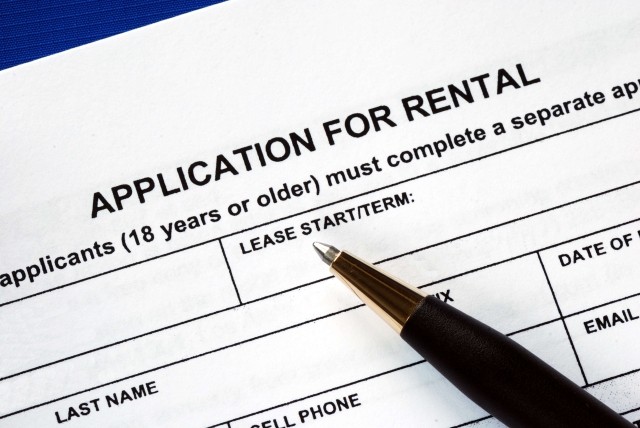If you're a property owner seeking the ideal tenant for your rental, it's vital to recognize that tenants vary in their reliability and responsibility. While some uphold their financial obligations and maintain the property well, others can be a continual burden, causing stress and financial difficulties. Conducting effective tenant interviews can make all the difference, ensuring a seamless and hassle-free tenancy. In this comprehensive guide, we will provide you with step-by-step instructions on how to carry out a tenant interview successfully.
Preparing for the Interview
Before meeting potential tenants, it is important to complete some necessary tasks. First, familiarize yourself with tenant interviews' legalities, ensuring compliance with the Fair Housing Act. This law prohibits discrimination based on race, color, national origin, religion, sex, familial status, or disability.
Next, create a comprehensive list of questions that cover essential areas such as employment, rental history, and lifestyle habits. However, remember that there are certain questions that you should not ask, such as age or marital status. Additionally, it is crucial to thoroughly review tenant applications in advance, gaining insights into their backgrounds, rental history, employment details, and references. Following these steps, you can streamline the tenant selection process and ensure full compliance with legal requirements.
Conducting the Interview
During the interview, it is important to maintain a professional yet friendly demeanor. Building a rapport with potential tenants is crucial. To facilitate this, prepared questions are invaluable.
Some of the questions you should ask include:
- Why are you looking for a new place to live?
When screening prospective tenants, it is important to inquire about the reason behind their move. This seemingly simple question can offer valuable insights into their past circumstances, such as prior evictions. By understanding their motivations, you can better assess their suitability as tenants. Common justifications for a move include outgrowing their current living space or seeking to reduce their work commute.
- How long have you been at the place you are now?
A tenant who has resided in the same property for multiple years likely had a positive relationship with their previous landlord. Conversely, if they have only been in their current unit for a short period, it may suggest issues with the previous rental agreement. This information will help you determine the reliability and suitability of the tenant for a long-term rental.
- When do you want to move in?
It is crucial to consider the timing of tenant applications for your available unit. If a prospective tenant applies in January but intends to move in March, it may not be optimal as you would miss out on two months' rent. Unless they're willing to pay for the period they won't be residing there, finding a tenant with a schedule that aligns more closely with yours is advisable.
- How many adults (over 18) will be living in the property?
To avoid excessive wear and tear on your property, it is crucial to ensure that the number of occupants aligns with your property's policies. Overcrowding can have detrimental effects that can be prevented by adhering to these guidelines.
- What pets do you have?
As a landlord, it is crucial to establish clear pet policies for your rental properties. Before making any decisions, consider the type of pet the tenant has and whether your property insurance covers pet-related damages. It is important to note that tenants with service animals or emotional support animals are protected by the American Disabilities Act (ADA). Therefore, landlords must allow these animals in their rentals, even if the unit is not designated as pet-friendly. If your rental property is pet-friendly, remember that tenants with service or emotional support animals are exempt from pet fees, deposits, or rent. Prior to move-in, tenants and their animals must provide you with proper documentation outlining their need for the animal, as required by the ADA and Fair Housing Laws.
- Are you able to provide references from employers and previous landlords?
To ensure the stability and financial responsibility of an applicant, it is crucial to gather information from both their employer and former landlord. By checking with their employer, you can verify the details provided on the rental application. Additionally, reaching out to their previous landlord is particularly valuable as it offers insights into their behavior as a renter.
Take note of their responses, but also their behavior. Are they open and honest, or are they evasive? Do they respect your time by arriving punctually to the interview, or were they late without a good reason? These subtle cues can give you insight into what kind of tenant they'll be.
Evaluating Suitability
Once the interview is over, it's time to assess the prospective tenant's suitability. Review their responses and consider if they align with what you're looking for in a tenant. For example, if they have a stable job and a good rental history, that's usually a positive sign.
However, don't rely solely on the interview. It's always a good idea to run a background and credit check (with their permission) to verify the information they provided. Apartments.com makes it easy to screen tenants, get the information you need, and find a qualified renter fast. We partner with TransUnion to provide you with screening reports for evictions, credit, and criminal history. Another feature you’ll find only on Apartments.com is support for co-signers, guarantors, and co-applicants. If you need more information to make a decision, you can request supporting documents from potential tenants directly on our platform.
Following Up
After conducting an interview, it is crucial to follow up. If the candidate is deemed suitable, express your interest in proceeding to the next phase, which involves collecting the security deposit and offering them the lease agreement. Conversely, if they are not the right fit, inform them courteously and professionally that their application will not proceed.
Common Pitfalls to Avoid
Do not hastily judge candidates based solely on first impressions. Additionally, ensure that you conduct a comprehensive background and credit check, even if the candidates appear flawless during the interview. Remember, the more thorough your evaluation, the greater the likelihood of finding an outstanding tenant.
A well-executed tenant interview can significantly impact your quest for the perfect tenant. Though it may demand time and effort, the benefits are worth it. By implementing these practical strategies and gaining valuable insights, you'll be able to find a great tenant for your rental.











